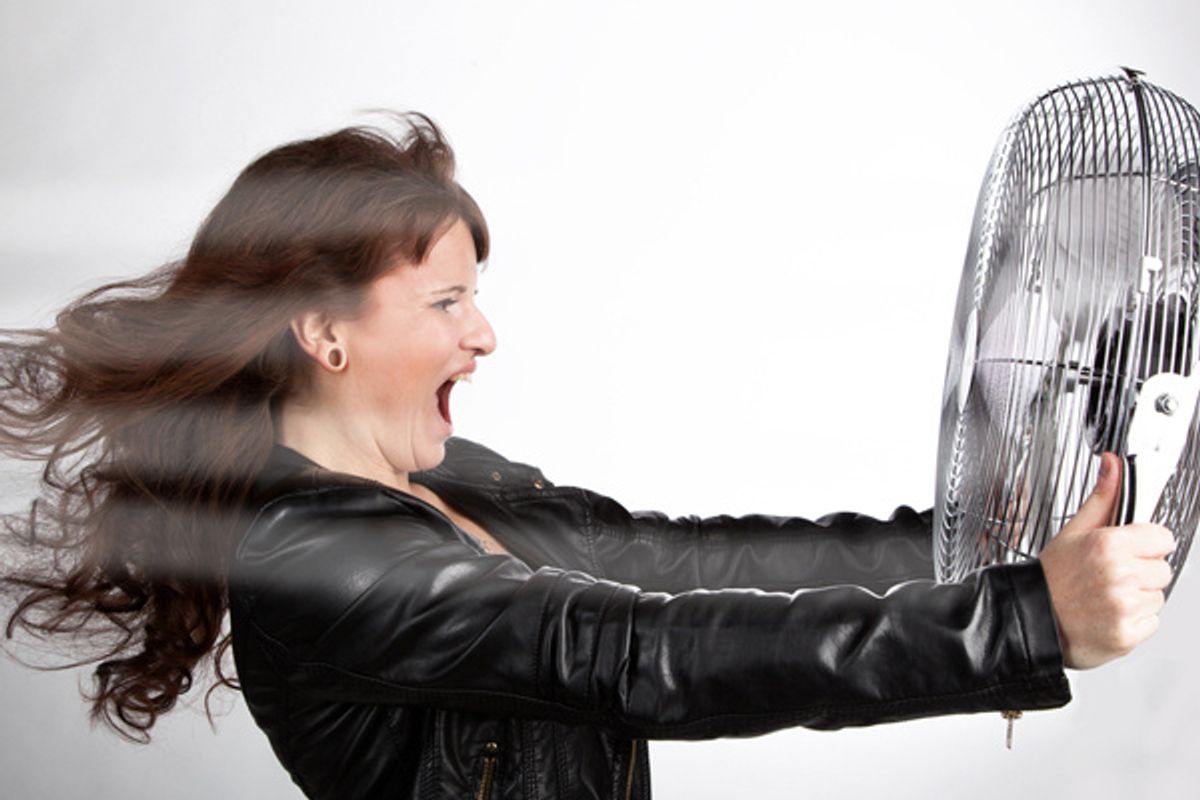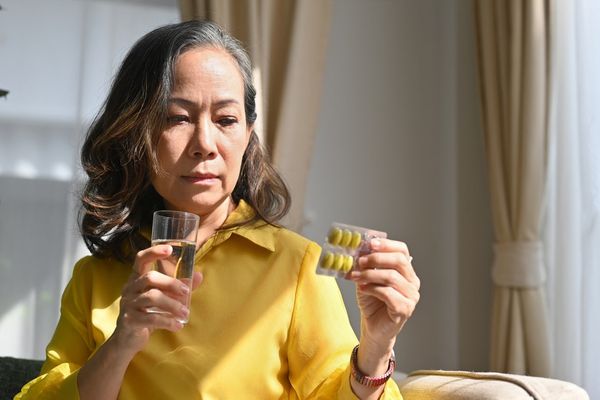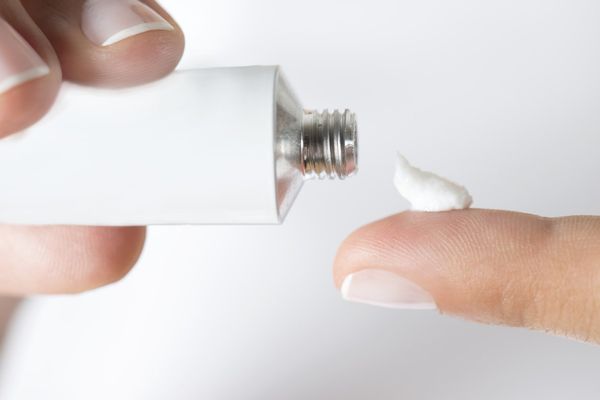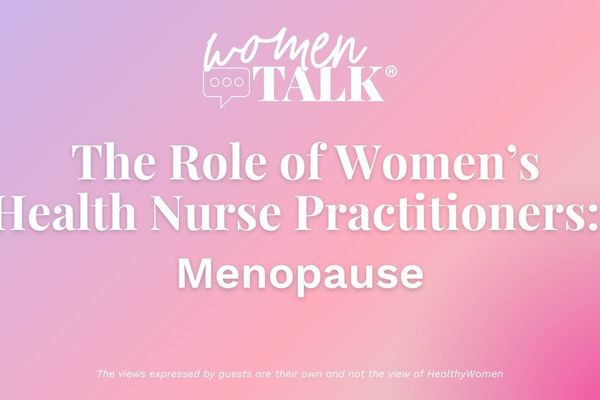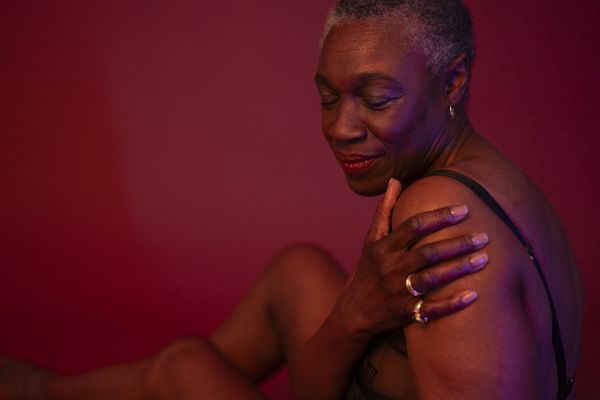If I asked 1,000 women what the most troublesome and annoying symptoms of menopause were, the majority would no doubt answer hot flashes.
By no means a scientific survey, all I have to do is remember my own and look around me. Every time I see that familiar look (red face, beads of sweat, clenched teeth) and watch those familiar body movements (wildly fanning with whatever object is within reach, throwing windows open, stripping off layers of clothing), I silently commiserate.
To the three-quarters of North American women who suffer from menopausal hot flashes: I feel your pain and discomfort. We who suffer are desperate to find solutions, especially since the latest research finds that hot flashes can last 11 years—or more (sorry, ladies!).
As someone who hates the cold weather and is always freezing once the temperature outside gets below 60, being married to a man with the opposite type of thermostat has been a challenge. That is, until menopause hit. That's when I finally moved over to his side: go ahead and throw the windows open even though it's winter outside; keep the thermostat low. My winter sweaters got packed away, and I stocked up on short-sleeved T-shirts to get me through numerous long winters.
Understanding hot flashes is tough. Not even the experts can fully figure out what causes them or how to eliminate them. Diana Bitner, MD, recently named NAMS Certified Menopause Practitioner of the Year by the North American Menopause Society (NAMS), explains it this way:
“Hot flashes are complex, triggered by more than just low estrogen. To understand, it helps to go back to the physiology. In our brain, we have a thermostat, similar to the thermostat in your home, detecting when our body is too hot or too cold. The thermostat's job is to get the body to heat up in response to cold (by shivering) or to cool off (hot flashes, sweating)."
Many women turn to hormones to cool their flashes, but what about those who can't use hormones for medical reasons, or choose not to?
Fifty percent to 80 percent of women turn to nonhormonal therapies. There are plenty of products and techniques touted for taming hot flashes. But questions about their safety and effectiveness remain. The trouble is that many women experiment or continue to suffer because there is little out there telling them what actually does work.
A NAMS statement says that one survey showed that nearly half of all women feel confused about their options for managing menopause symptoms. Another survey showed that 75 percent don't feel fully informed about herbal products.
Wouldn't it be nice to know the real deal?
To answer that vexing question, NAMS convened a panel of experts to examine the evidence and reach some recommendations for the suffering masses. Those findings were recently published online in the journal Menopause.
The panel found solid evidence that a few therapies were indeed helpful.
Significantly effective:
- Cognitive-behavioral therapy combining relaxation techniques, sleep hygiene and learning to take positive, healthy approaches to menopause challenges were found help "reduce women's ratings of hot flash problems—although not their number."
- Also recommended: Clinical hypnosis
May be beneficial, but recommended with caution because evidence is not as strong:
- Weight loss
- Stress reduction
- Soy derivative under study called S-equol
- Stellate ganglion block, a type of nerve block
May be helpful, although may not offer as much relief as hormones:
Various nonhormonal prescription medications including:
- Selective serotonin reuptake inhibitors (SSRIs). These include paroxetine (the one FDA-approved nonhormonal therapy for hot flashes).
- Serotonin-norepinephrine reuptake inhibitors (SNRIs) such as venlafaxine, gabapentinoids (gabapentin and pregabalin) and clonidine.
Do not work, but may offer other health benefits:
- Yoga
- Paced respiration
- Acupuncture
Unlikely to help:
Over-the-counter and herbal therapies such as:
- Black cohosh
- Dong quai
- Evening primrose
- Flaxseed
- Maca
- Omega-3s
- Pollen extract
- Vitamins
- Relaxation
- Chiropractic intervention
Perhaps you've tried some of these and found success (or not). What works for one woman may not work for another.
"It is our job to recognize the best way to counsel a patient is to understand her unique situation and offer options," says Dr. Bitner. "Each person has barriers that make one modality more likely to fit within her daily lifestyle based on habits, beliefs and health status."
My opinion? Seek out all your options. Because menopause is complicated, some health care providers are hesitant to address its many variables and offer treatment. The data can be confusing and thorny.
Another reason to be informed and empowered to be your very best health advocate!
More Reading:
Menopause and Anxiety: What's The Connection?
8 Ways to Deal With Hot Flashes in the Heat (Or Is-It-Hot-In-Here-or-Is-It-Just-Summer?)
September Is Menopause Awareness Month

